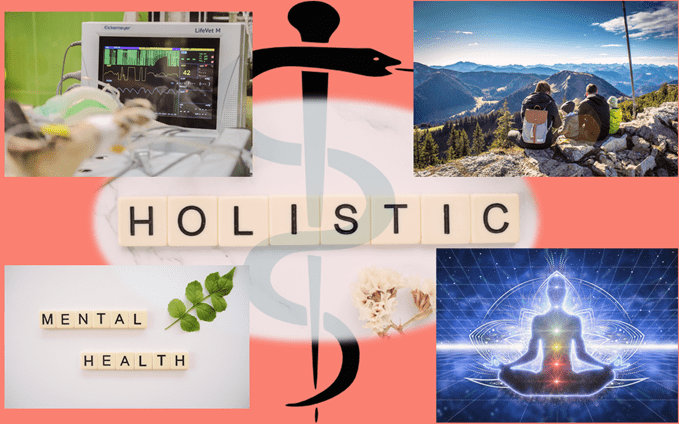
Introduction Into Holistic Health and the Four Pillars: A Comprehensive Exploration
Holistic health encompasses a multifaceted approach to well-being, emphasizing the interconnectedness of various aspects of our lives. The four main pillars are: Physical, Mental, Emotional, and Spiritual. Not to be confused with homeopathic health, the four pillars of holistic health encompass vitality, balance, and harmony across different dimensions.
Brief Description of Homeopathic Health
Homeopathy, founded by Samuel Hahnemann in the late 18th century, centers on the concept of “like cures like.” It posits that substances causing symptoms in healthy individuals can treat similar symptoms in the sick (The Editors of Encyclopædia Britannica, 2024). Homeopathy is a branch of holistic medicine that is more tailored to individual’s needs. Both holistic and homeopathy medicine are federally recognized and regulated by the FDA (National Center for Homeopathy, n.d.).
Neither homeopathy nor holistic is to be confused with alternative medicine which is a non-conventional form of treatment. While many forms of alternative treatments are not approved by the FDA, some non-traditional forms of treatment, like acupuncture, are approved by the FDA.
The Four Pillars of Holistic Health (Shi & Singh, 2012)
1. Physical Health
Physical health forms the bedrock of overall well-being. Key aspects include:
- Nutrition: Nourishing our bodies with wholesome foods.
- Exercise: Regular physical activity to maintain strength, flexibility, and cardiovascular health.
- Rest and Sleep: Prioritizing quality sleep for rejuvenation.
- Hydration: Staying hydrated to support bodily functions.
2. Mental Health
Our minds play a crucial role in holistic health. Consider:
- Mindfulness: Cultivating awareness and being present in the moment.
- Stress Management: Techniques to cope with life’s challenges.
- Intellectual Stimulation: Engaging in lifelong learning and mental exercises.
3. Emotional Health
Emotional well-being impacts our overall health. Focus on:
- Self-Compassion: Treating ourselves kindly and understanding our emotions.
- Social Connections: Nurturing meaningful relationships.
- Emotional Expression: Allowing ourselves to feel and express emotions authentically.
4. Spiritual Health
Spirituality transcends religious beliefs. It involves:
- Purpose and Meaning: Connecting to something greater than ourselves.
- Inner Peace: Practices like meditation, prayer, or mindfulness.
- Alignment with Values: Living in accordance with our core beliefs.
Discussion
While there are four basic pillars, in an article from the site Ask the Scientists, they identify eight pillars. Basically, they pulled out sub-categories and identified them as additional pillars. Holistic health integrates these four main pillars, recognizing that they are interwoven. By nurturing each aspect, we can achieve a state of well-being that encompasses mind, body, and spirit.
References
- National Center for Homeopathy. (n.d.). What is Homeopathy? Retrieved from National Center for Homeopathy: https://homeopathycenter.org/homeopathy-faqs/
- Shi, L., & Singh, D. A. (2012). Delivering Health Care in America: A System Approach. Burlington, MA: Jones & Bartlett Learning.
- The Editors of Encyclopædia Britannica. (2024, April 6). Samuel Hahnemann. Retrieved from Encyclopædia Britannica: https://www.britannica.com/biography/Samuel-Hahnemann

